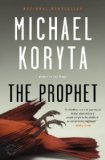Summary | Excerpt | Reading Guide | Reviews | Beyond the Book | Readalikes | Genres & Themes | Author Bio

He has patience for study, and hunger for it, in the way that only those truly devoted to a craft can ever possess. His craft is killing. His understanding of it is great, but he knows there will always be more to learn, and in that knowledge is his happiness. He has studied the behavior of killers, has spoken with them, has lived behind steel bars with them, and he has learned from them all.
Now, as the wind freshens and the smell of dead leaves fills air that is rapidly chilling with the promise of rain, he stares at the front of the high school long enough to observe the security guard in the parking lot, and then he walks down the block and turns the corner and the football field comes into view. Here the Cardinals make their claim to glory. It's a terrible name for sporting teams. Why not the Warriors or Titans or Tigers? How does one summon any level of confidence wearing the logo of a bird that can be killed by the squeeze of a child's palm?
There are half a dozen men sitting in the aluminum bleachers that border the field. He is not the only watcher today. They are undefeated, these Cardinals, they are the most intense pride of a town that once had many more reasons to be proud.
He slips in, leans beside the bleachers with hands in pockets, and waits for the coach to arrive. The coach, of course, is more than a coach. He has won 153 games for this school, this community. He has lost only twenty-two. On this field where his players are now stretching, limbering up against the wind and beneath the gray sky, he has a record of eighty-one wins against four losses. Just four home losses. He's more than a coach, he is a folk hero. A mythic figure. And not just because of the wins. Oh, no. Coach Kent Austin is about much more than football.
He proves it now, drawing silence as he walks across the field, still a young man and a fit one but always with the trace of a limp, the left knee refusing to match strides with the right, always yielding just a little more, a little too much. It only adds to the coach's compelling quality. Everyone else recognizes his wounds; the coach pretends not to.
It is not only the young players in uniform who fall silent as the coach makes his way across the field, it is the men in the stands, the watchers. There is a reverence about them now, because what happens on this field matters deeply to people who have not so much as walked across its surface. You take your pride where you can find it, and right now, this is where it can be found. Because hard times have come to Chambers. This much he understands well, reads it as a weather forecaster would read the dark clouds scudding in off Lake Erie. He is a forecaster in his own right.
A prophet of hard times.
The coach is far too focused to look up and see him, because the coach is at work, lost to the game that he insists does not matter, but of course it matters because it is all he really has, in the end. Empty games and empty faith. Hollow words and false promises. A child's preoccupations and distractions, carefully constructed walls to separate him from the reality of the world that owns him, that carries him in an open palm that could so swiftly turn into a closed fist. He needs to feel the first squeeze of that fist.
The prophet spent three years with a killer named Zane who murdered his wife and both of her parents with a ten-gauge shotgun. Quite a messy weapon, the ten-gauge. Before he pulled the trigger, he gave all three of them the chance to renounce God. To say that Zane was their God. A promising idea, though poorly understood. Zane was not of proper depth for such a task, but he was to be admired for the effort nevertheless. The way Zane told it, two of the victims accepted him as their God and one did not. It made no difference in their fate, of course, but Zane was interested in their answers, and so was the prophet. At one time, he was even impressed. The idea of posing that question to someone facing the final seconds before entering eternity seemed powerful.
Excerpted from The Prophet by Michael Koryta. Copyright © 2012 by Michael Koryta. Excerpted by permission of Little Brown & Company. All rights reserved. No part of this excerpt may be reproduced or reprinted without permission in writing from the publisher.
Your guide toexceptional books
BookBrowse seeks out and recommends the best in contemporary fiction and nonfiction—books that not only engage and entertain but also deepen our understanding of ourselves and the world around us.